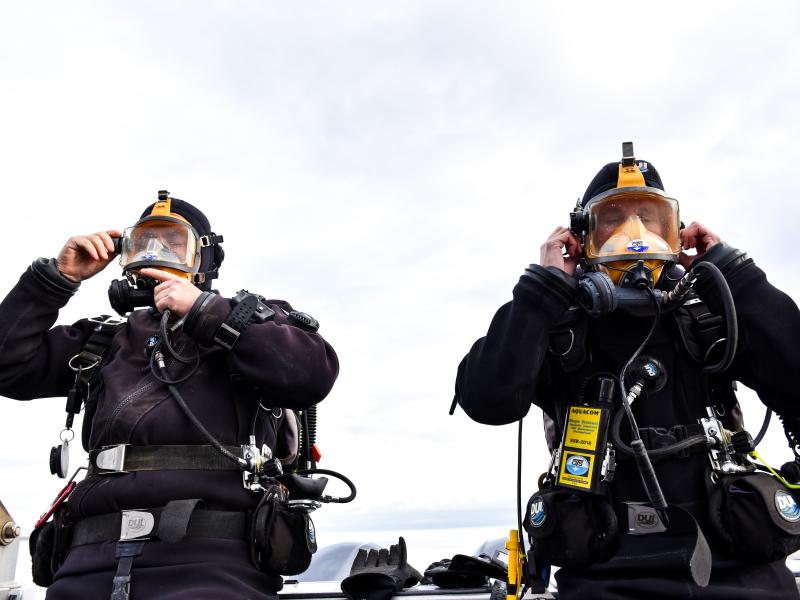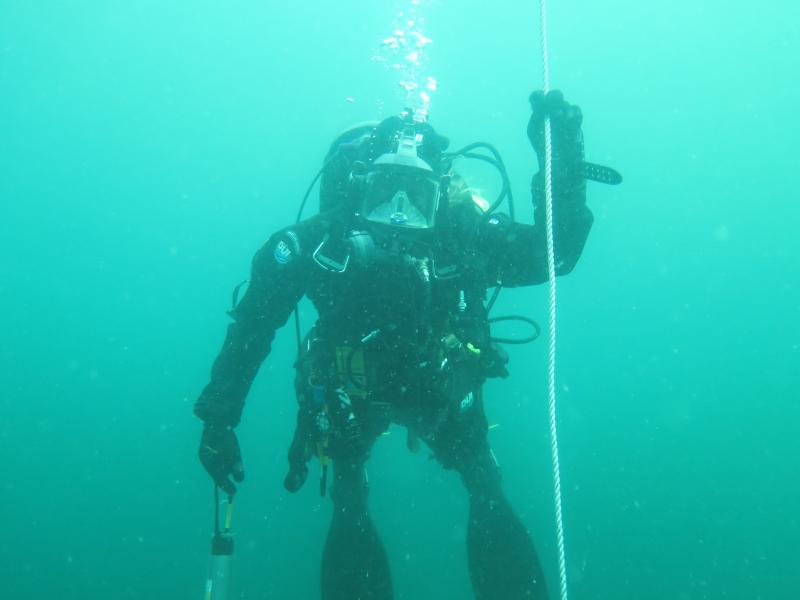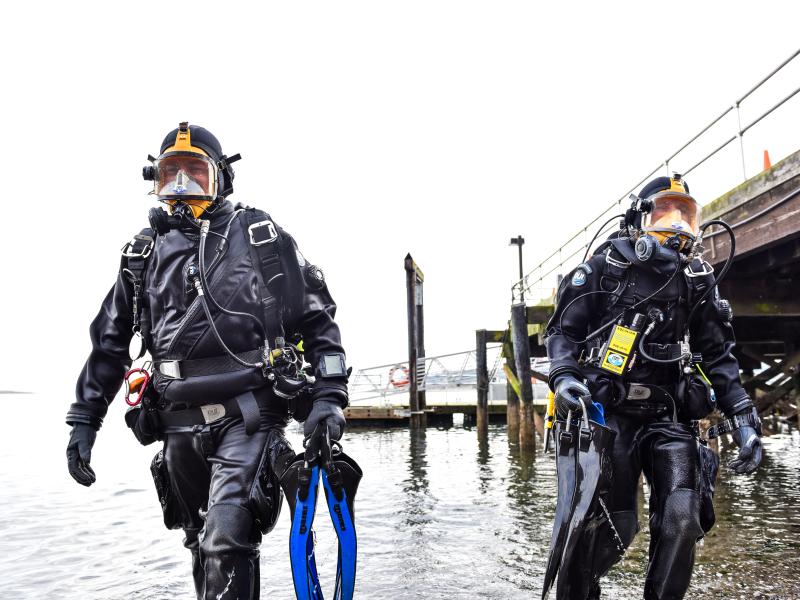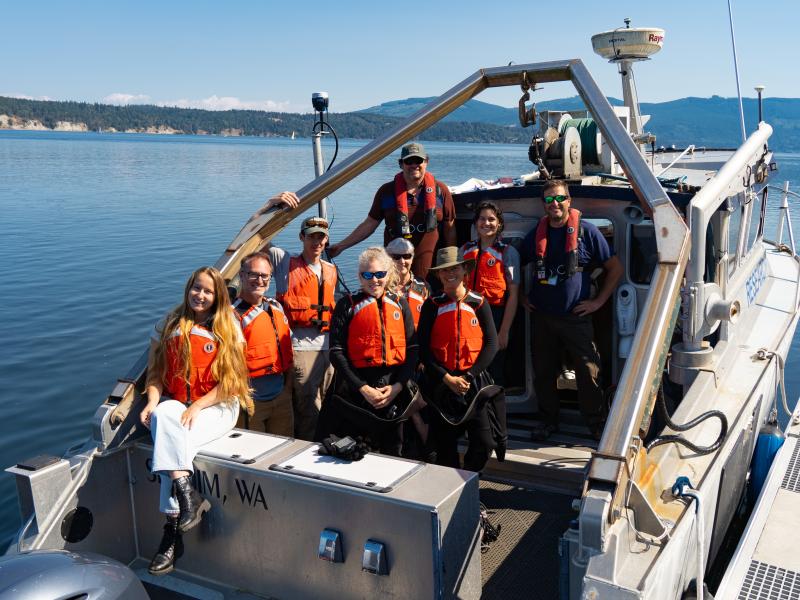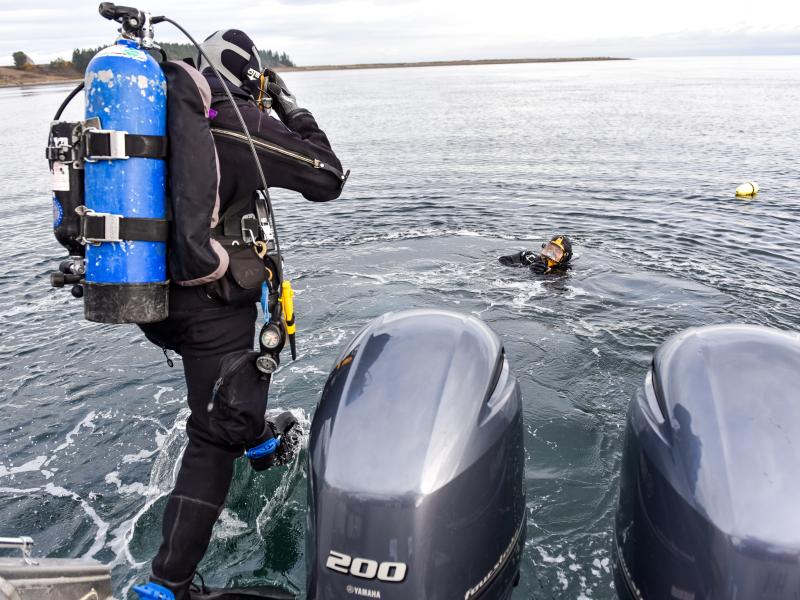
Scientific Diving at PNNL-Sequim
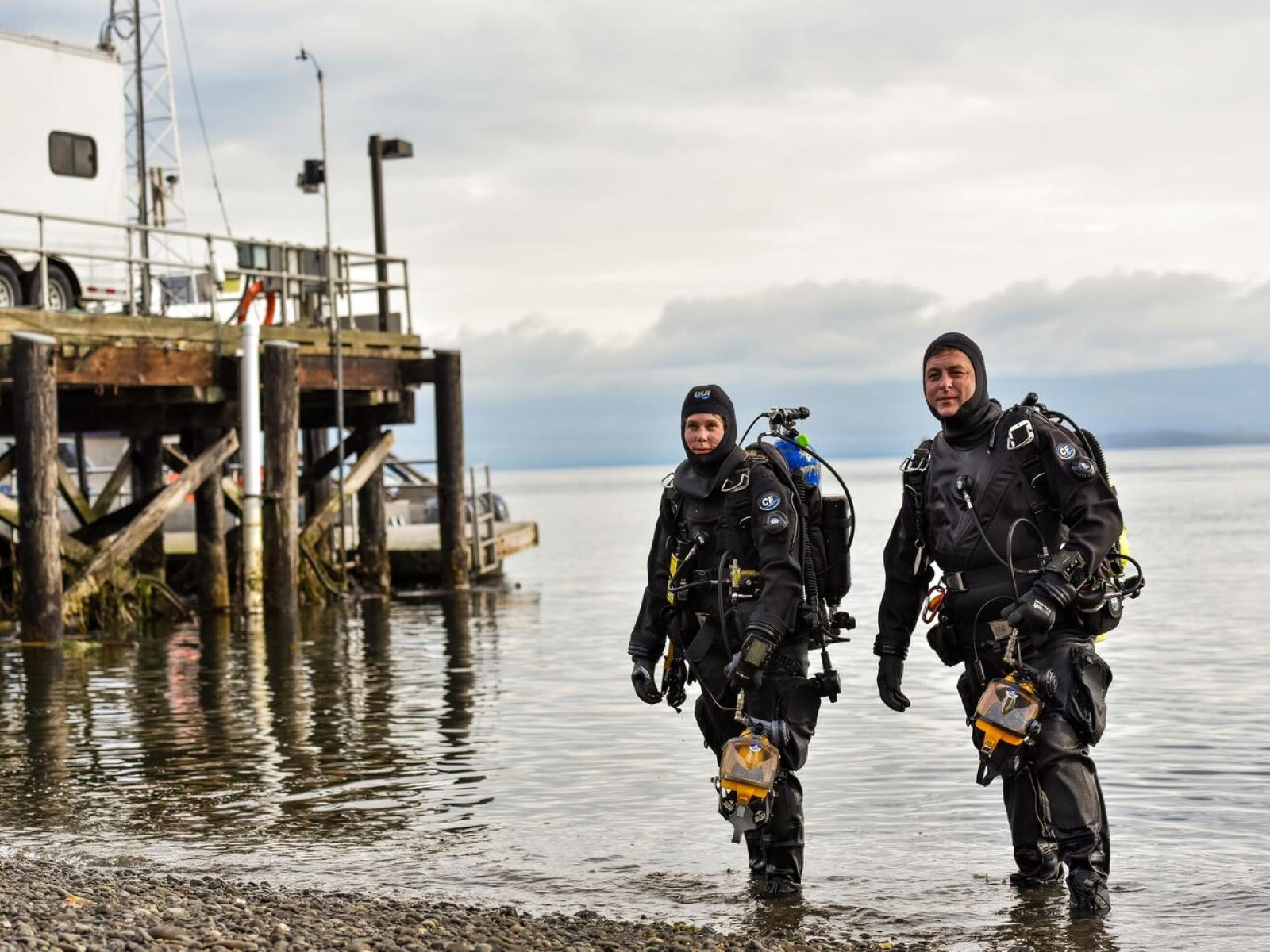
PNNL-Sequim scientific divers help to test the environmental impacts of marine energy by deploying, maintaining, and retrieving sensors to explore biological activity around energy devices.
(Photo by Andrea Starr | Pacific Northwest National Laboratory)
Marine and coastal research capabilities at PNNL-Sequim include an experienced dive team comprising researchers with a breadth of scientific expertise. The team supports scientific and engineering research projects in waters ranging from the coastal ocean to large and small rivers across the United States. These divers perform a range of studies, including substrate assessments and data collection, habitat restoration, underwater sampling, equipment deployment and support, and underwater videography and photography. At a minimum, our divers have basic, advanced, and rescue diver certifications and are equipped with standard SCUBA and rebreather equipment. They use full face masks that allow for underwater communication with each other and people out of the water.
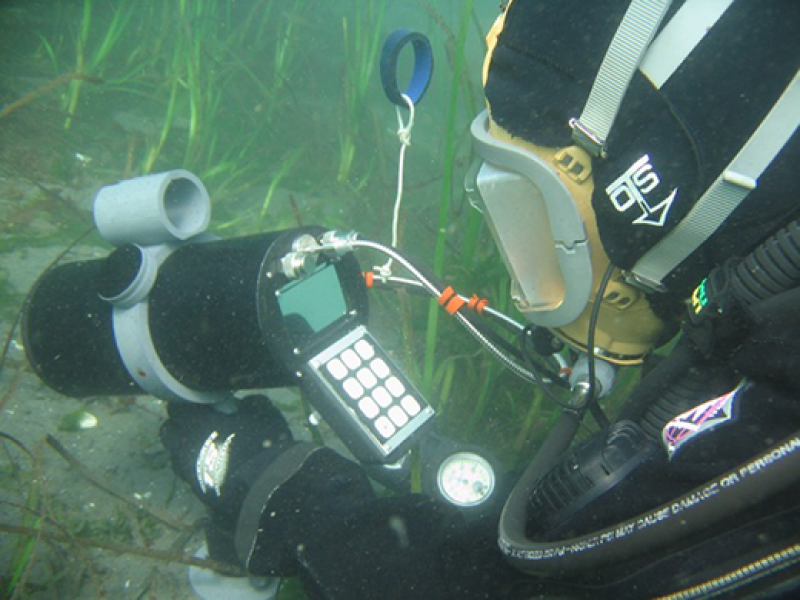
The research dive team is a capability at Pacific Northwest National Laboratory (PNNL) that allows eyes- and hands-on site and underwater activities when needed for various projects. The team might do habitat assessments, sensor deployments/maintenance/retrieval, troubleshooting, documentation, or even be targets of opportunity any given day depending on the project. Having scientists as our divers gives the team a unique perspective and understanding of the work PNNL is doing and leads to a better product in the end.

